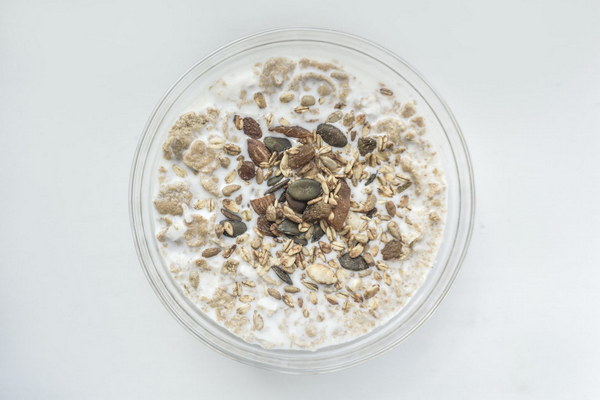Nurturing Health Essential Tips for Post-Severe Pneumonia Care
Introduction:

Severe pneumonia can be a challenging condition that requires careful management and recovery. Once the acute phase of the illness has passed, it is crucial to focus on post-severe pneumonia care to ensure a full recovery and prevent future complications. This article provides essential tips on how to nurture your health during the recovery process from severe pneumonia.
1. Follow Medical Guidance:
After a diagnosis of severe pneumonia, it is essential to follow your healthcare provider's advice meticulously. This includes taking prescribed medications, attending follow-up appointments, and adhering to any lifestyle changes recommended.
1. Maintain Hydration:
Hydration plays a vital role in the recovery process. Drinking plenty of fluids helps thin the mucus, making it easier to cough up and reducing the risk of respiratory infections. Aim for at least eight glasses of water per day, and consider herbal teas or broths to increase fluid intake.
2. Rest and Recovery:
Rest is crucial for the body to heal and recover from severe pneumonia. Allow yourself to sleep more than usual, especially during the initial stages of recovery. Avoid overexertion and gradually increase your activity level as you feel better.
3. Nutrition:
A well-balanced diet provides the necessary nutrients to support your body's healing process. Focus on incorporating a variety of fruits, vegetables, whole grains, lean proteins, and healthy fats into your meals. Ensure you are getting enough vitamins, especially vitamin D, vitamin C, and zinc, which may help boost your immune system and aid in recovery.
4. Breathing Exercises:
Breathing exercises, such as pursed-lip breathing and diaphragmatic breathing, can help improve lung function and reduce shortness of breath. Consult with your healthcare provider to learn proper techniques and incorporate these exercises into your daily routine.
5. Manage Pain and Fever:
Pain and fever are common symptoms during the recovery process. Use over-the-counter pain relievers, such as acetaminophen or ibuprofen, as directed by your healthcare provider. If you have a fever, monitor it closely and seek medical advice if it persists or worsens.
6. Monitor for Complications:
Keep a close eye on your symptoms and report any new or worsening symptoms to your healthcare provider. Potential complications of severe pneumonia include respiratory failure, heart problems, and sepsis. Early detection and treatment of complications can prevent further health issues.
7. Practice Good Hygiene:
Good hygiene helps prevent the spread of respiratory infections and can aid in your recovery. Wash your hands frequently with soap and water, avoid close contact with others, and cover your mouth and nose when coughing or sneezing.
8. Avoid Smoking and Secondhand Smoke:
Smoking and secondhand smoke can worsen lung function and delay recovery. If you are a smoker, quitting smoking is one of the most critical steps you can take to improve your health and reduce the risk of future respiratory infections.
9. Stay Active:
As your health improves, gradually increase your physical activity to maintain lung function and overall fitness. Engage in activities that are appropriate for your fitness level, such as walking, swimming, or yoga, and consult with your healthcare provider before starting any new exercise regimen.
10. Seek Professional Support:
Recovery from severe pneumonia can be mentally and emotionally challenging. Don't hesitate to seek professional support from a therapist or counselor if you are struggling with stress, anxiety, or depression during this time.
Conclusion:
Recovery from severe pneumonia requires time, patience, and attention to your overall health. By following these essential tips, you can promote a full recovery and reduce the risk of future complications. Always consult with your healthcare provider for personalized advice and guidance throughout your recovery journey.









